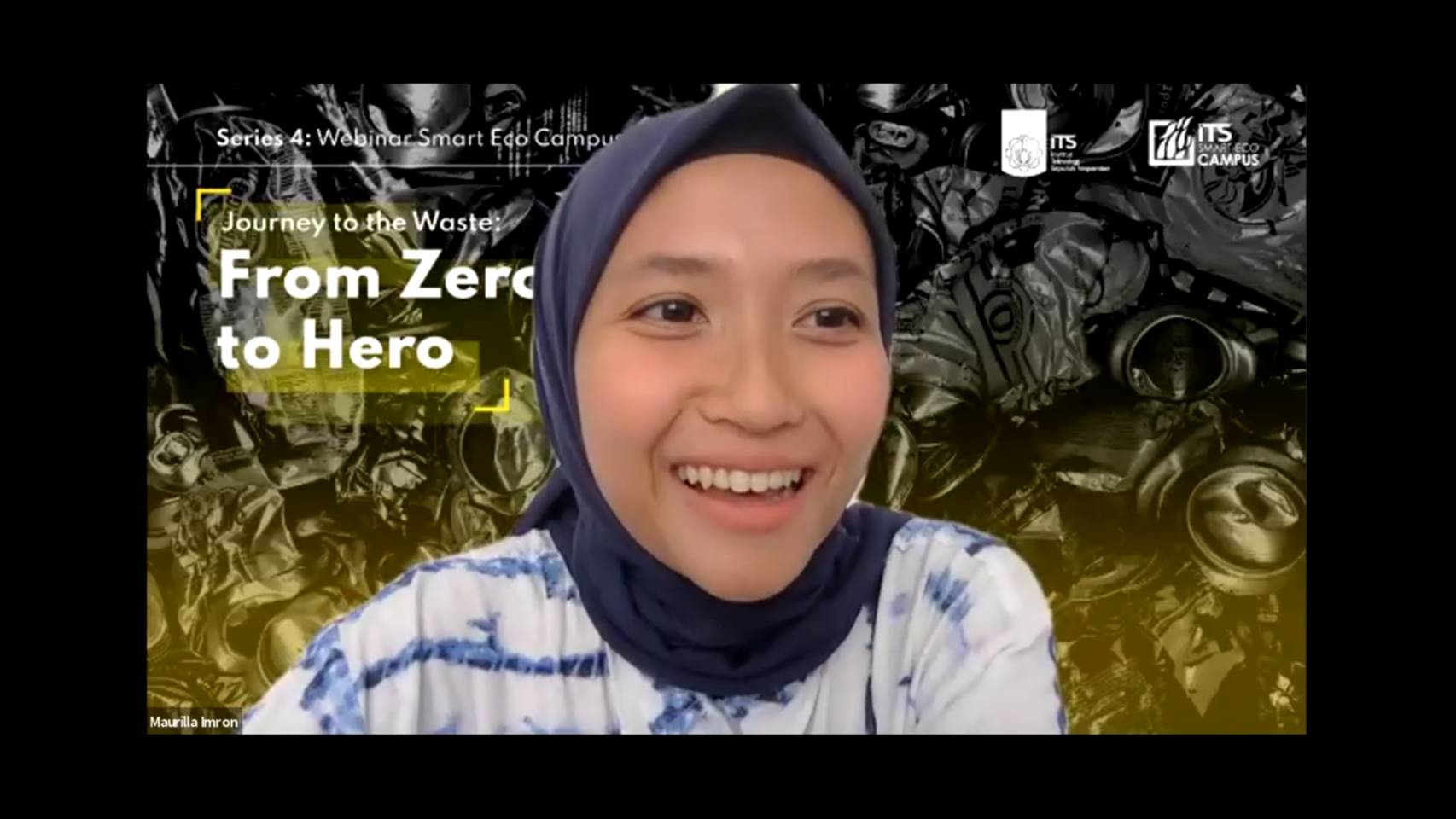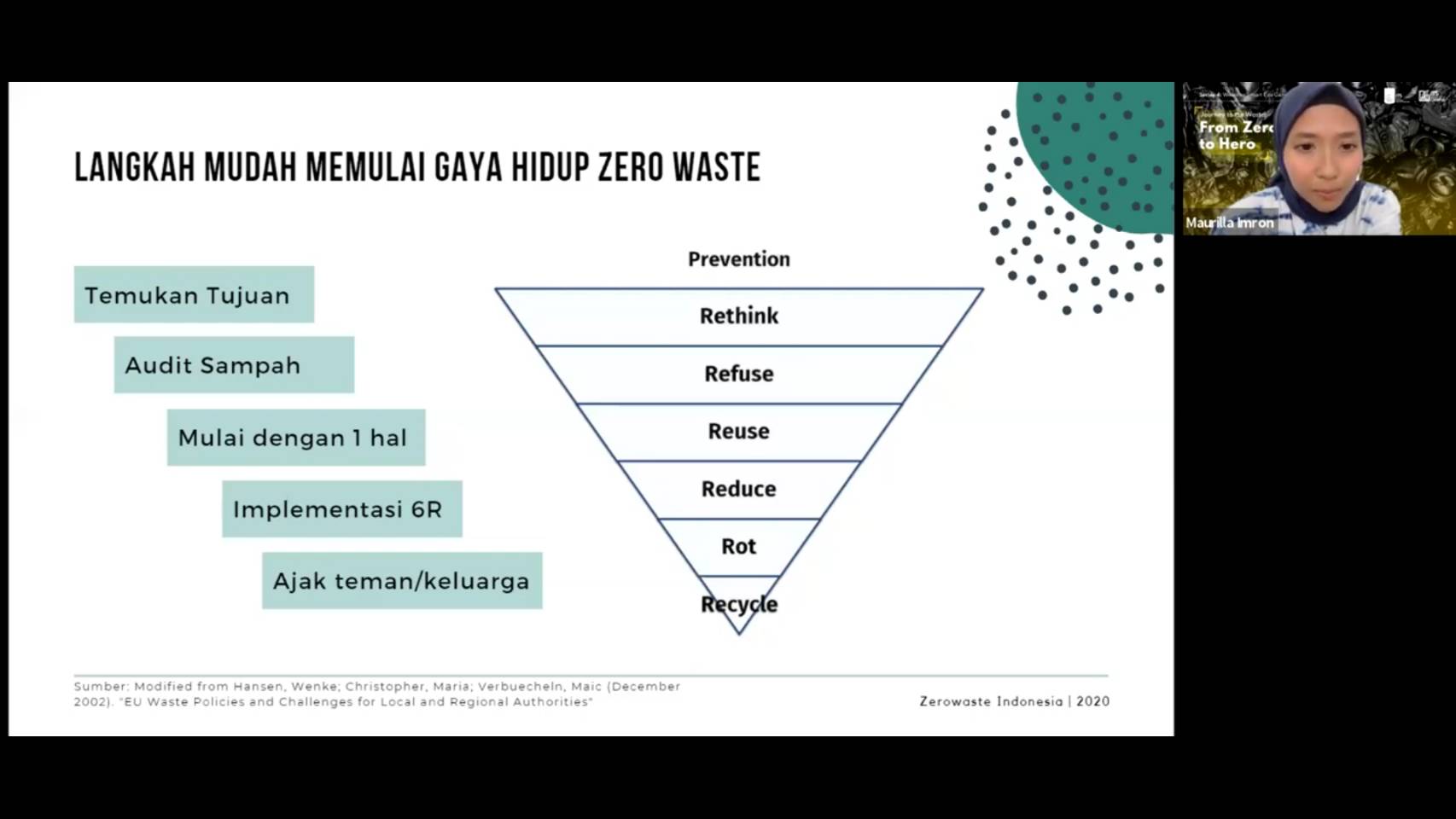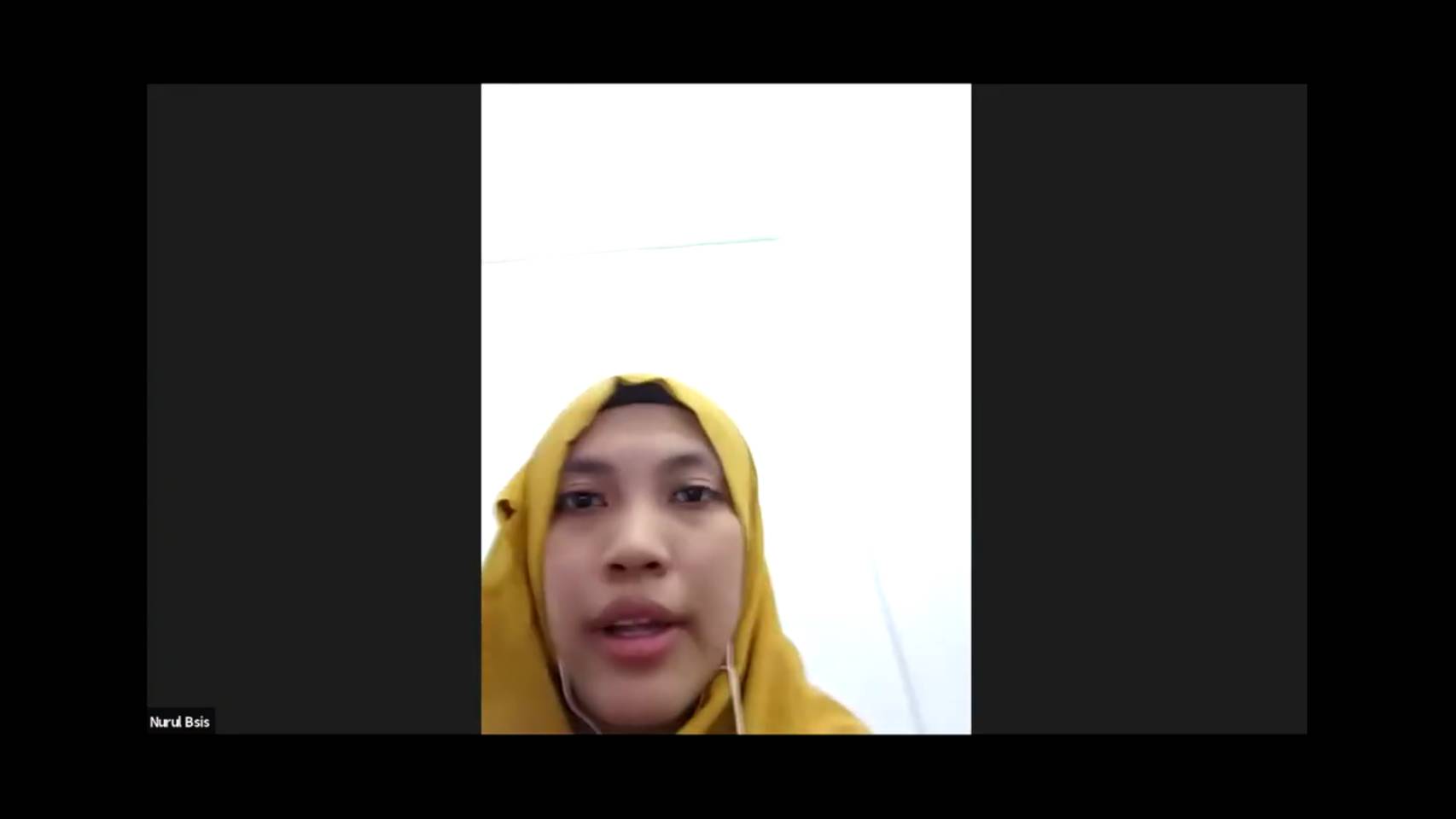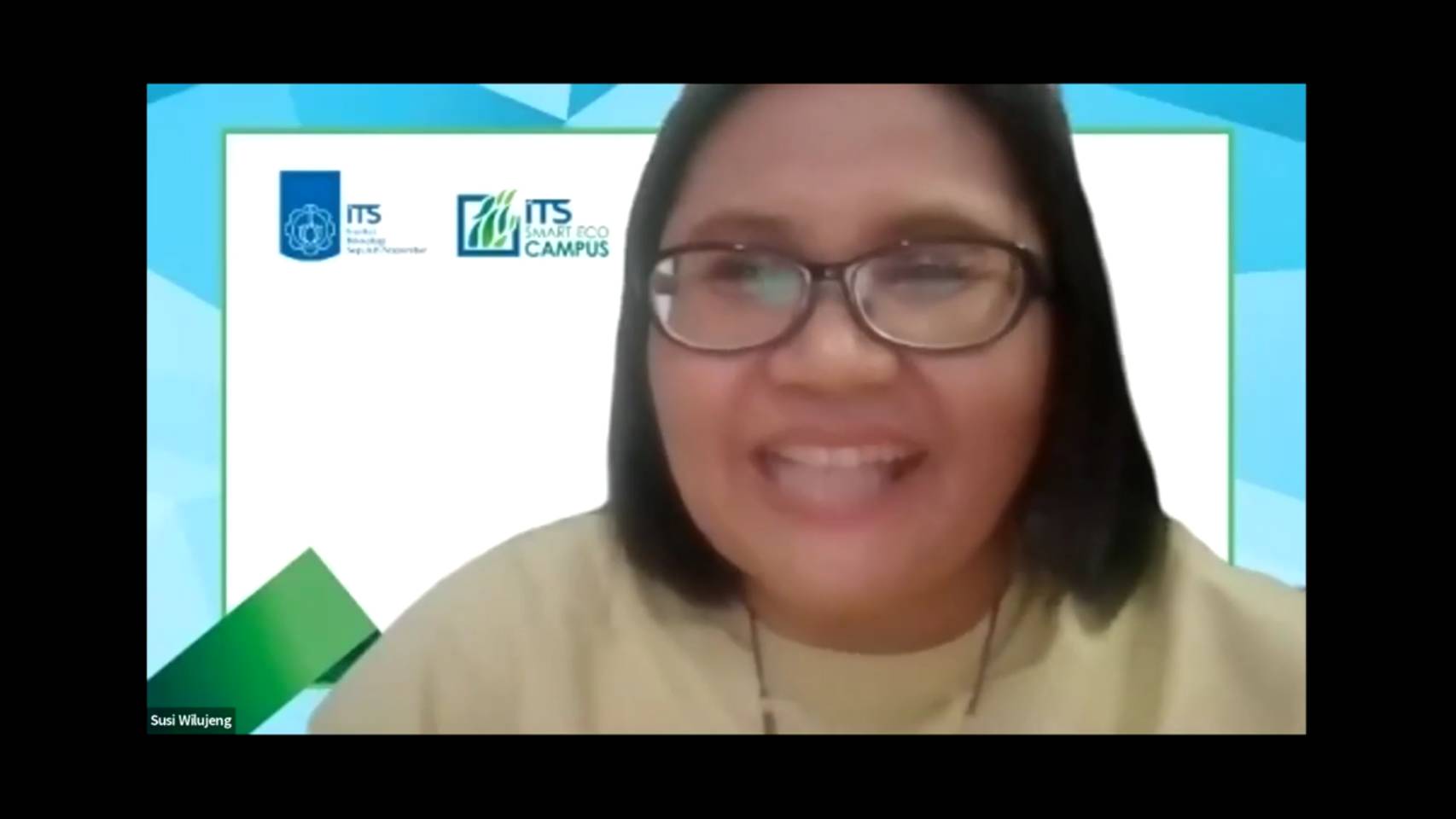ITS Promotes A New Lifestyle In Waste Management

Founder of Zero Waste Indonesia community, Maurilla Sophianti Imron as one of the speakers in a webinar titled Journey to the Waste: From Zero to Hero
ITS Campus, ITS News — High levels of community consumption have an impact on the amount of garbage with a management system that is still not good. To pay attention to this, the Smart Eco Campus Development Unit of Institut Teknologi Sepuluh Nopember (PSEC ITS) seeks to promote a new lifestyle in waste management.
In this webinar titled Journey to the Waste: From Zero to Hero, ITS partnered with Maurilla Sophianti Imron, founder of Zero Waste Indonesia. She revealed that the average waste production of each person in Indonesia reaches 0.7 kilograms every day. “This means that the total daily production of public waste reaches 175,000 tons and only seven percent of the total waste gets further management,” explained the woman who is familiarly called Mueril.
To that end, he urged people to start a new lifestyle of minimizing waste by implementing 6R. Rethink before purchasing goods, Refuse plastic use, Reuse, Reduce plastic consumption, Repair damaged goods, and Recycle. “One of the programs we campaigned on was #TukarBaju that emphasized the reuse aspect by exchanging clothes instead of buying new clothes,” explained the mother of one child.
Mueril again stressed that zero waste is really how we can be wise in consuming and responsible for the waste we produce. It starts with convincing yourself, then spreading it around. “Because in fact, we are agents of change, so start here and start now,” Mueril warned.

Steps to solve the waste problems according to Zero Waste Indonesia
This discussion session hosted by Afif Faiq Muhammad also created the Surabaya Master Waste Bank (BSIS) represented by Nurul Chasanah. In this case, BSIS exists to empower home communities such as housewives and young people to collect inorganic waste. “As well as saving money, the garbage given to us can be exchanged for cash and we are responsible for the recycling process,” explained the woman who is often called Nurul.
Regarding the establishment of waste management behavior in the community, BSIS Public Relations Staff said that the earliest stage is to provide education of waste. Furthermore, the community is expected to be able to sort the garbage independently from each other’s homes. “If it can be followed by the surroundings, the community can set up a unit garbage bank or send it directly to the main garbage bank,” she said.

Public Relations Staff of ank Sampah Induk Surabaya (BSIS), Nurul Chasanah as speakers
With processing reaching 361.57 tons of inorganic waste throughout 2019, BSIS often shows consistency in ten major programs. One of the favorites of the community is the exchange of 53 types of inorganic garbage. “Ranging from glass bottle waste to residual oil, we make sure to be recycled through cooperation with trusted parties,” explained Nurul.
To promote the spirit of waste management in the community, the national best waste bank in 2017 is trying to provide a stable waste exchange rate. “We also facilitate with garbage pick-up program with complete deposit administration record for customers,” said Nurul.

Head of ITS Smart Eco Campus Development Unit, Susi Agustina Wilujeng ST MT
At the end of the session, the Chairman of ITS PSEC Unit, Susi Agustina Wilujeng ST MT hopes that participants get knowledge and inspiration to manage their waste. “With a variety of participants’ backgrounds, hopefully, a new lifestyle arises in waste management by all aspects of society,” she concluded. (tri/hen/rev)
Related News
-
Faithful in Times of Joy and Sorrow, Married Couple Graduate with Doctorates Together at ITS
ITS Campus, ITS News — As though guided by one heart and one soul, Dr Hanugra Aulia Sidharta ST
August 30, 2020 11:08 -
ITS Wins 2024 Project Implementation Award for Commitment to Gender Implementation
ITS Campus, ITS News —Not only technology-oriented, Institut Teknologi Sepuluh Nopember (ITS) also show its commitment to support gender
August 30, 2020 11:08 -
ITS Professor Researched the Role of Human Integration in Sustainable Architecture
ITS Campus, ITS News –The developing era has an impact on many aspects of life, including in the field
August 30, 2020 11:08 -
ITS Sends Off Group for Joint Homecoming to 64 Destination Areas
ITS Campus, ITS News — Approaching Eid al-Fitr, the Sepuluh Nopember Institute of Technology (ITS) is once again facilitating academics who want
August 30, 2020 11:08
